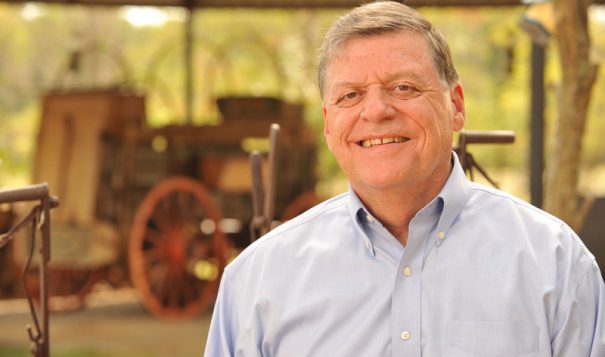 U.S. Rep. Tom Cole, a member of The Chickasaw Nation, raised more than $869,000 last year. #NativeVote18 (Campaign photo)
U.S. Rep. Tom Cole, a member of The Chickasaw Nation, raised more than $869,000 last year. #NativeVote18 (Campaign photo)
Mark Trahant / Trahant Reports
It’s time to look at the money. How much money are #NativeVote18 candidates raising?
Yes, I know, this is a silly metric. After all there is no relationship to governing and calling up people you don’t know and asking them for money. Yet this is the system in place. A candidate is more likely to be successful if she or he can raise a lot of money.
So it’s no surprise that the big money collectors — even in Indian Country — are the ones who already hold office or who have held office recently. And it’s probably no surprise that the big money is headed down Republican alley.
The top money raiser is Rep. Tom Cole, R-Oklahoma. The latest Federal Election Commission reports were posted at the end of January and reflect fundraising for 2017. His net: $1.7 million, cash on hand.
Several tribes donated the maximum amount to Cole’s campaign. Oklahoma tribes, such as his own, the Chickasaw, and the Cherokee Nation, backed Cole as well as tribes from across the country ranging from Penobscot to Stillaguamish.
Some of the contributors have different agendas. Tribes, for example, support Cole because of his strong stands on tribal sovereignty. Yet the American Dental Association, another contributor, has worked against that very issue by challenging the tribes right to regulate mid-level dental practices. (Previous: Tribal sovereignty and the call for better oral health.)
Washington congressional candidate Dino Rossi comes in second for fundraising last year, netting a little more than a million dollars. This is remarkable when you consider he was not even a candidate until September. Rossi is Tlingit and Italian.
As I wrote in September: “One of his first jobs was working for Bernie Whitebear at Seattle’s United Indians of All Tribes. It’s interesting how some candidates make their tribal affiliation prominent and weigh in on issues that impact Indian Country. That would not be Rossi. But he doesn’t shy away (as many politicians do) from the conversation. It’s just not his focus.”
His campaign finance report bears that out. You won’t find a lot of tribal money.

Debra Haaland, who is running for Congress in New Mexico, raised more than $386,000 in her bid. If elected, she would be the first Native woman ever elected to the House. (Campaign photo)
The top Democrat for fundraising this cycle is Debra Haaland running in Albuquerque. She ended the year just shy of $200,000 in cash. Haaland, of course, and I can’t write it often enough, would be the first Native American woman ever elected to Congress. She’s running in a district that favors Democrats but she must win the primary first against seven other candidates. So far Sedillo Lopez, a former associate dean at the University of New Mexico Law School, has raised some $456,000 and reports $348,000 in cash on hand. Haaland has raised a total of $386,000 in contributions.
There is a huge difference between Haaland’s fundraising and Cole’s money. Most of her contributions come in $10 and $25 chunks. Small money. But that’s important because it could reflect interest by real voters instead of tribes and Political Action Committees and business interests. She does get some money from tribes, including her own, Laguna Pueblo, but not nearly as much as is found in Cole’s treasury.
The race for Oklahoma’s second congressional district could become the first election between two tribal members, the incumbent, Rep. Markwayne Mullin, and his challenger Tahlequah Mayor Jason Nichols. Both men are Cherokee.
But so far on the money side it’s not much of a contest. Mullin raised about $725,000 last year, netting $434,333.37. Nichols raised $17,575.52 and ended with $8,287.30 cash on hand.
The trick in any campaign is to raise as much money as needed to be competitive. That doesn’t always mean first. But it does mean having the resources to compete in media advertising, including social media, hiring staff, and organizing.
Several #NativeVote18 candidates showed no fundraising in the FEC reports. It could be because there fundraising is scant, or ramping up later, or because reports have not been filed yet.
#NativeVote18 spreadsheet of federal candidates with links to FEC reports.
Mark Trahant is an independent journalist and a member of The Shoshone-Bannock Tribes. On Twitter @TrahantReports

